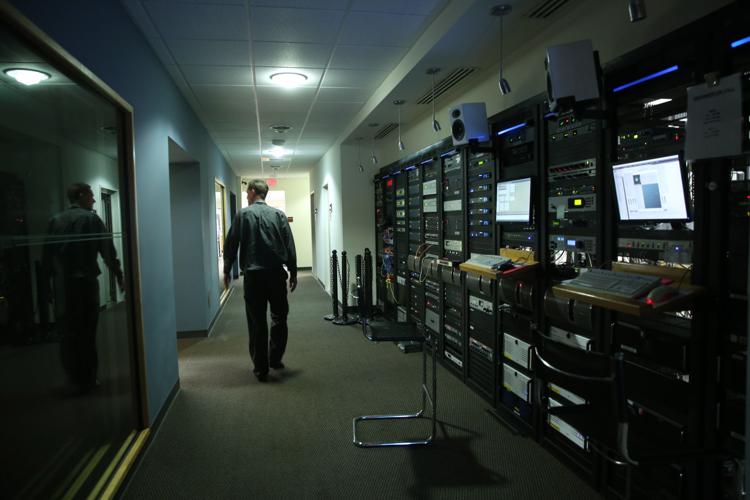Sent teetering by congressional cuts, public TV and radio broadcasting stations based in Â鶹´«Ă˝ąŮÍř are working to regain stability.
Almost $1 million, or 29%, of the annual funding for Blue Ridge PBS was eliminated last week, said Blue Ridge Public Television President Will Anderson.
“It’s almost overwhelming, and it affects the stations like ours in just a horrific way,” Anderson said. “We’re set up on a three-legged stool.”
The federal leg of that stool gave way when Congress and President Donald Trump rescinded $1 billion of funding from the Corporation for Public Broadcasting.
Without the drawdown provided by that nonprofit, Blue Ridge PBS and PBS Appalachia will rely solely on state and viewer contributions.
“It becomes hard for us to continue to do what we do,” Anderson said. “When PBS talks about this affecting small, rural stations, we are just that.”
People are also reading…
Reached by phone Friday afternoon, Anderson said he was with coworkers near Washington, D.C., working on “what’s the best path forward.”
“There’s a couple of paths we can take,” Anderson said. “I’m still deciding what those paths are.”
Without the federal funding, he said it might be difficult to pay dues to PBS to air national programming on the local stations.
“I know everybody loves getting that PBS programming. NewsHour, Masterpiece and so forth,” Anderson said. “But my number one commitment is serving the local community by telling the stories of Southwest Virginia.”

A July 18 Facebook post from WVTF public radio in Â鶹´«Ă˝ąŮÍř urges listeners to donate after Congress pulled federal funding for public broadcasting.
The stations have 25 staff members who are not threatened by the funding cuts at this point, he said. The same is true for staff at WVTF and Radio IQ, also based in Â鶹´«Ă˝ąŮÍř, General Manager Roger Duvall said.
“It’s 6% of our total budget,” Duvall said. “That’s $300,000 a year that we are going to lose since they have rescinded federal funding.”

Inside WVTF public radio in Â鶹´«Ă˝ąŮÍř.
Listeners have stepped up since hearing about the cuts, but not enough yet to make up for the difference, he said. Some leftover funds will tide the radio station over into 2026, giving time to figure out more revenue or decide what programs go away.
“We buy an awful lot of programming from national providers,” Duvall said. “We can save a significant portion of that $300,000 by just shuffling some of the programming elements that we offer on the air.”















